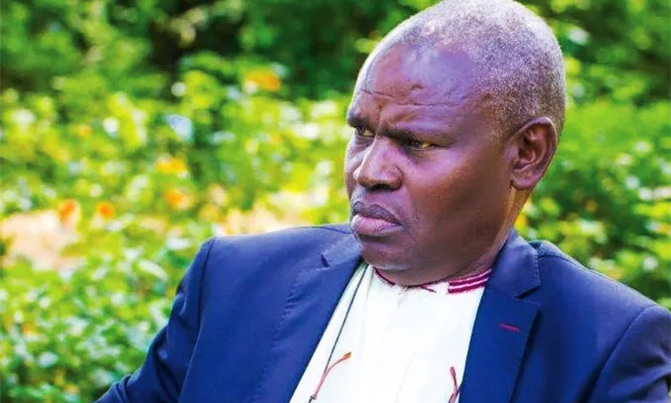There are words that are told to us once in life, whose significance only rises with time. When Abebi was passing on of a cruel diabetic condition, she called up her son Abiola and told him, “Always be trustworthy!” In her weak state she muffled a few other things, the betrayal she had met in life but bore no bitterness because she believed in a just and fair God. Then she breathed her last.
At the time both were living together, having been thrown out of the family home. This was after Abiola’s father, Chikuemuka, had secured a younger wife, Katali. Chikuemuka was a trader in cotton which he would sale largely to travelling merchants. He always bought on credit from peasants but yet would never sell to any merchant unless by cash. Now instead of paying back the peasants what he owed he would use the proceeds to acquire square miles of land for his growing business empire. Whenever his many debtors would call upon him up for payment, he would put them on hold insisting that he had no money. “Come back when I get paid.”
That’s how he became one of the wealthiest men in Umondi county. But Chikuemeka’s fortunes started going down when one day he trusted one merchant with a huge delivery on credit, which he rarely did. He had done business with this particular merchant many times before and when he called him that he wanted a huge purchase, Chikuemuka quickly went back and collected as much cotton from the peasants. “Trust me this time,” he assured all of them of payment.
But once he delivered the assignment that was the last he saw of the merchant. Chikuemuka kept waiting for his payment in vain. Then the peasants started demanding their payments too and for sure this time Chikuemuka had no coin. They got the local authorities involved and started confiscating his land.
As his fortune spiraled down, at his home, Katali the new wife started accusing Abebi of engaging in witchcraft that was the cause of their husband’s misfortune. Chikuemuka sided with Katali and threw Abebi out of the family home with her son, Abiola.
Chikuemuka was eventually arrested and thrown in jail. Once in jail Katali run off with what was left of his property. Chikuemuka died a miserable man, unattended, regretting the pain he had caused to all those peasants he had used to get ahead in life.
After the death of his parents, Abiola, dropped out of school and started doing odd jobs. He would go to rich people’s gardens and plead to be allowed to till for them. But he hated these jobs which exacted faithful hard work for poor pay. Then one day he met a village mate who convinced him to start brewing local gin. “It is easy to make money here because you can easily cut corners and sell people even bad stuff,” said the village mate. “They are mostly drunk anyway and can’t tell the difference!”
Cutting corners involved minimizing contents like molasses, yielding a brew with a high poisonous alcoholic volume. One day several deaths were reported in Umondi. When investigations were carried out the culprit was found to be Abiola’s ginnery. Villagers moved to lynch Abiola. But he caught wind of their advance in time and fled to Kumasi.
Kumasi was a big city where Abiola found he could easily survive by passing with a false identity. Using some of his savings, he started by boarding a nice apartment where he paid for the first three months. Then he stopped. When the landlord showed up, he begged for more time. But after three months he decided to vacate in the night; he was confident of being safe, since in the big city, no one could trace him.
Abiola took up another abode where he paid for the first three months. As before, he disappeared after tossing the landlord up and down for the next three months. “If I can get away in a year by paying only half the rent,” he thought to himself. “This is good saving!”
This became Abiola’s standard way of living and doing business. He would start off by being a good client to someone he was trading with, and once he had the unsuspecting person hooked, he would make a huge transaction on credit, then disappear with the client’s money. From this way of doing business he started buying huge tracts of land in the countryside. He was happy with his progress and started thinking of starting a family.
After sharing his need, a friend in the city introduced him to a young beautiful girl, still in school. They struck a bargain with her agreeing to be married to him, if he could pay her school fees in a beauty vocational school. “I don’t want to be seated home all day!”
“No problem,” Abiola agreed without hesitation and started bankrolling her.
From trading and pulling fast ones on the unsuspecting, Abiola’s business empire kept growing. Aware of all the enemies he was making Abiola acquired a pistol for defense. He always moved stealthily ready to fire back just in case one of those he had cheated caught up with him. He drove cars with tinted glasses and ever at breakneck speed.
As a tycoon he decided to invest in real estate too. Once he had set up rental units, he had no problems in having them taken up. But something strange started happening to Chukuemuka soon after. Every now and then came those tenants, who started by paying well, only to disappear into the middle of the night after keeping him in suspense for three months or more. He was furious, seeing all the damage they had caused to his property and without paying.
Abiola decided to report the culprits to police. “Why are people here untrustworthy!” The police knew he was a wealthy man. All they did was to extract as much money as they could from him, pleading they needed all to carry out investigations. Frustrated for lack of progress Abiola gave up chasing delinquent tenants and suffering more losses. “You can’t trust anybody here!”
One day Abiola needed to secure a loan from the bank for his business. When he offered some of his titles as collateral the bank upon verification found the land was encumbered. Abiola couldn’t believe it. He recalled how the seller had given him all assurances that the land was unencumbered. But here he was discovering he had been sold air. “You can’t trust anybody here!” he spat.
Just then he got another blow. After paying school fees for his girl fiend, and as she was about to graduate, she sent him a chit mentioning that the friend who had introduced them had all along been her lover. The two were planning to wed. Abiola was crushed. He felt like the end of the world had come after all his investment in this girl. “Why me!” he moaned. He took out his pistol ready to end his life.
Down and disheartened, wanting to end his life, it is then that Abiola recalled his gentle mother, Abebi’s last words. “Always be a trustworthy person!” The pistol still pointed to his head Abiola saw that all along he had been riding on other people’s back to get ahead, and his sins were finally catching up on him. “She said this to protect me!” Trembling, he lowered the pistol in deep contemplation….
In any society there are those who decide that to get ahead theirs would be a life of pulling a fast one on those whom they deal with but who happen to have fallen asleep. The consequence of that is theirs is always a fast life one of constantly looking over the shoulders, fearing that perhaps one has met their match, and it is now game up! And, perhaps for that reason, is why some have suggested preaching virtues like trust and honesty is literally in one’s interest, because otherwise you are living on borrowed time!






